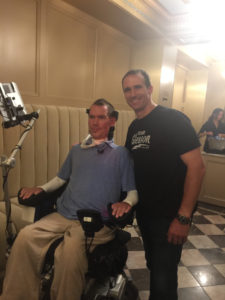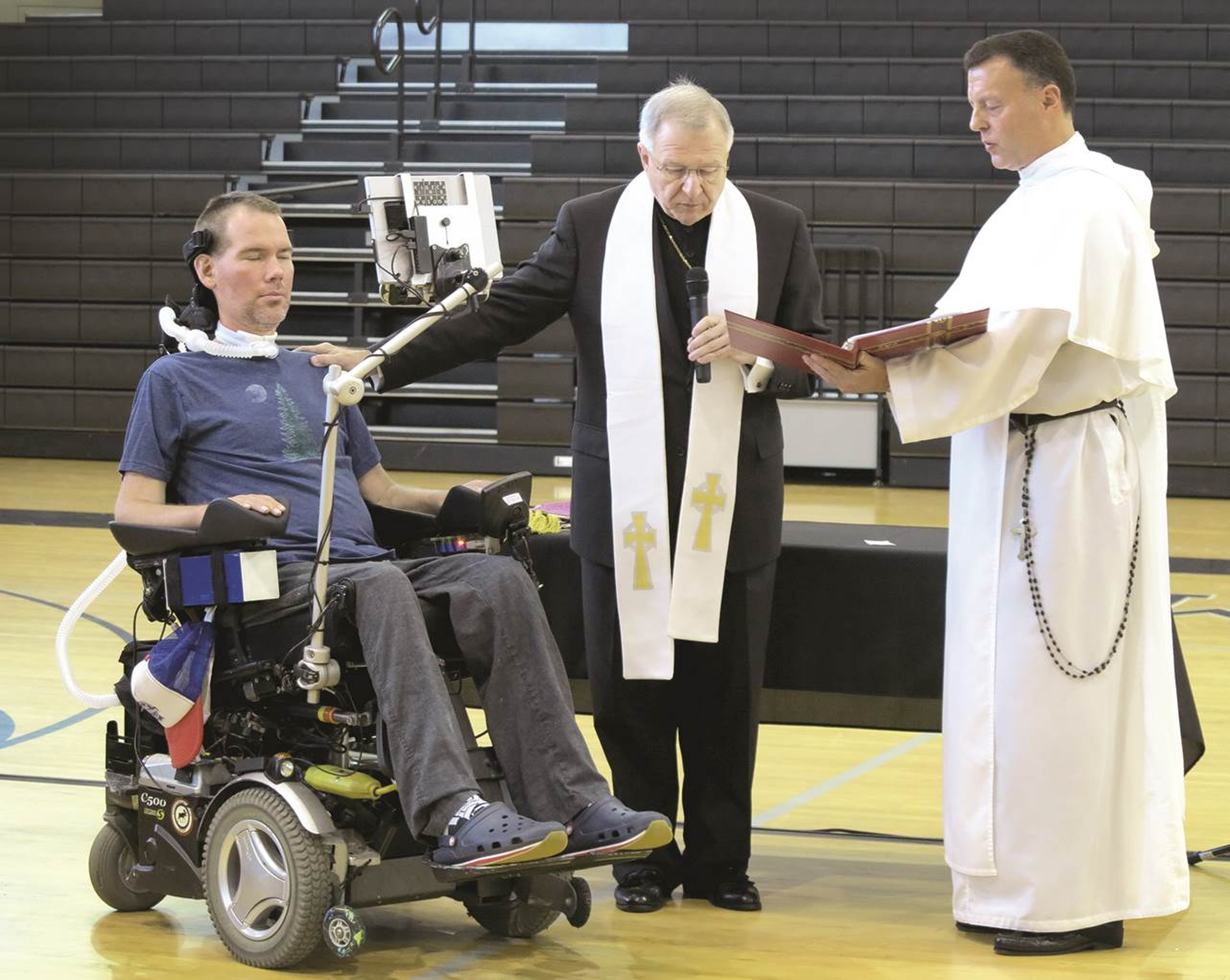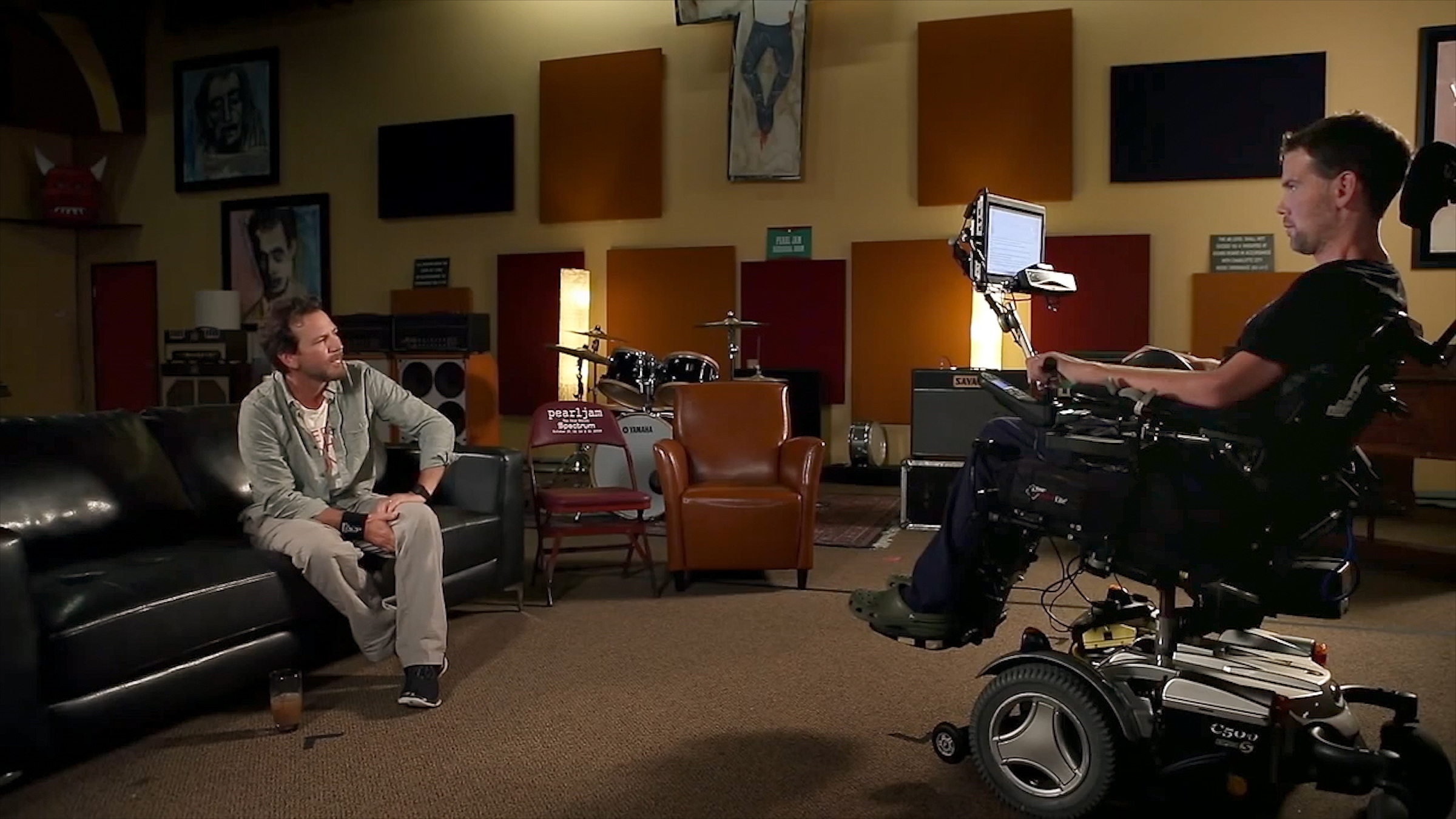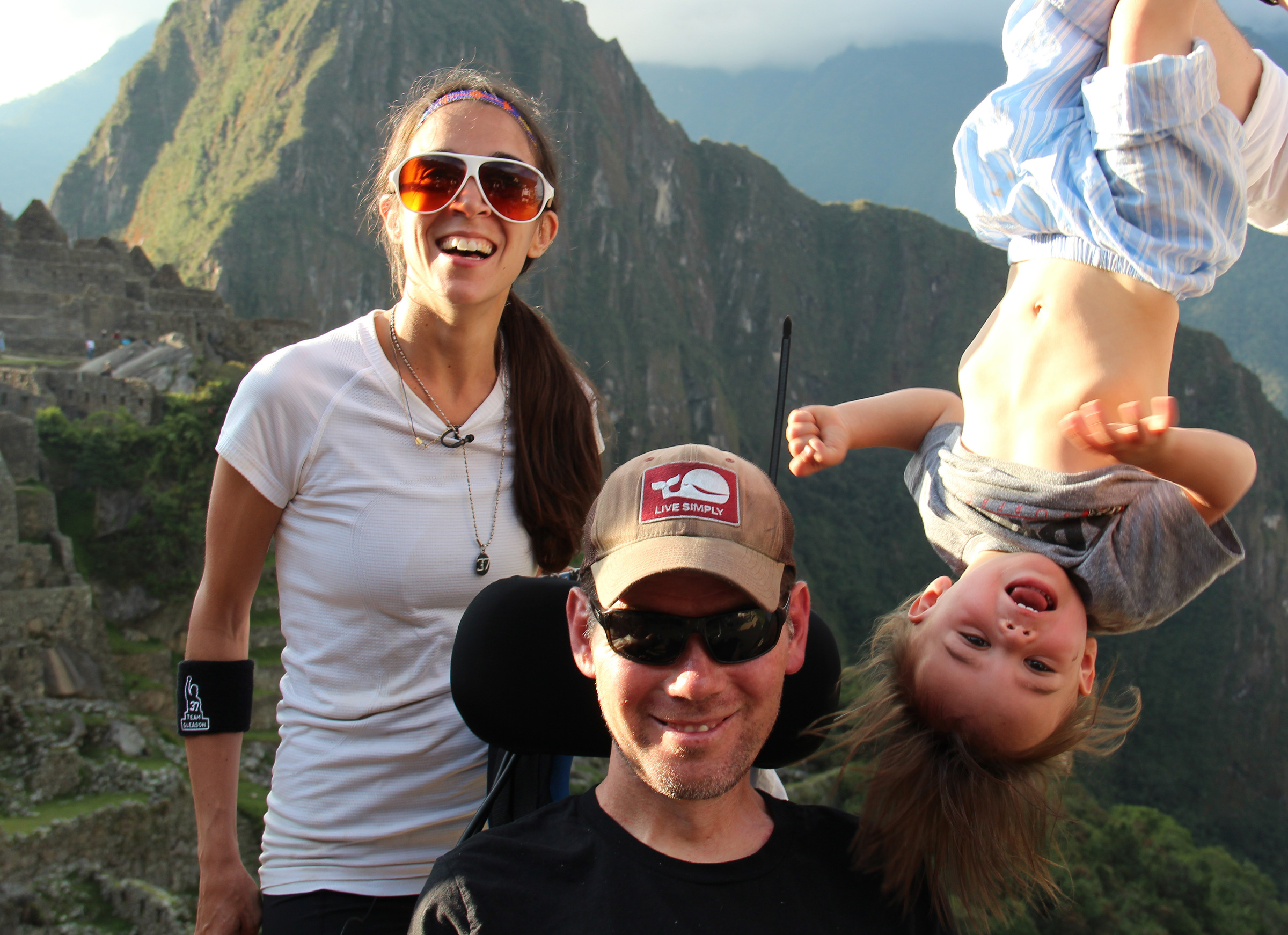
By Christine Bordelon
Catholic News Service
NEW ORLEANS (CNS) — A former pro football player who is the subject of a new documentary about his life with amyotrophic lateral sclerosis, or Lou Gehrig’s disease, told a crowd at St. Mary’s Dominican High School in New Orleans to “relentlessly seek your purpose.”
Steve Gleason played for the New Orleans Saints from 2000 to 2008 and is best known in the Crescent City for blocking an Atlanta Falcons punt that resulted in the first Saints touchdown during the first football game in the restored Superdome after Hurricane Katrina in 2005. He was diagnosed with ALS in 2011.
The June 18 prayer service, “Steve Gleason: A Witness to Faith,” was sponsored by the Archdiocese of New Orleans and allowed Gleason to convey his ideas on religion and how he has dealt with his disease.
“In the beginning stages, I certainly prayed to be healed,” Gleason said. “I also saw healing on nearly every level. … I rarely pray to be healed these days. While I would love to walk and talk again, the Creator can choose to heal me or not.
“Most importantly, I enjoy my life,” Gleason continued. “I have less faith in a gnarly bearded, white male God to come intervene by bending or breaking the physical laws of the universe to rescue a single person. I pray for my daily bread, my strength, ingenuity to continue living the life I love — my life with purpose.”
The documentary, “Gleason,” which chronicles his life, the advance of ALS and his response to the diagnosis, had a limited distribution July 29 and will be more widely released Aug. 5. It premiered earlier this year at the Sundance Film Festival.

Gleason said ALS has given him and his family — his wife, Michel, and son Rivers, with whom Gleason was baptized Catholic in 2012 — “an opportunity to share our strength, our example, our love with whomever needs to hear it.”
Gleason, who speaks through a speech generation device — he recorded the phonetic sounds the device uses before his voice grew unintelligible — said his high school years at Jesuit-run Gonzaga Preparatory School in Spokane, Washington, shaped who he is today.
“I was taught perseverance when faced with adversity, and also I learned how to be resilient after defeat,” he said. “I learned that by giving yourself to others, far more will come to you. … Most importantly, I learned to love my neighbor as myself. When I looked at my life, in its entirety, I suppose my blood flows naturally and instinctively with faith.”
He said “the homilies that fuel my blood” come from his communion with nature.
“The Creator has never spoken to my soul more clearly than on the edge of the river,” Gleason said. “Our son’s name gives praise to the sacrament.”
Gleason said he finds “the Creator’s voice in me on the youngest branches of the oldest, most mysterious oak trees in the neighborhoods of this wonderful city.”
He implored attendees to relentlessly explore faith with childlike curiosity.

“Exploration requires two simultaneous elements — a curiosity to gain knowledge and the admission of ignorance, which to my ears sounds like when Jesus said, ‘I tell you unless you change and become like little children, you will never enter the kingdom of heaven.’“
“By definition, faith is believing in something you cannot believe in,” Gleason said. “So, if this word ‘faith’ cannot be rationalized, there is an endless amount of exploring to do for us as the faithful. So, if you walk in here, questioning your faith, join the club. I think you are on the right track.”
As a lover of words, Gleason observed that “the word ‘religion’ has given humans (a reason) to not only love others, but also a reason to exclude and hate others. The word ‘religion’ can separate us as a people.”
The most powerful word in his vocabulary is purpose.
“When I feel purposeful, I feel relevant, I feel energized,” he said. “I feel excited to get up every day, conquer my obstacles and fulfill my purpose. Like those faithful explorers, I think living with purpose requires a commitment to exploration.”
Gleason founded Team Gleason in 2011 to increase the awareness of ALS and to support others with the disease.

While attendees raised their hands in solidarity, Archbishop Gregory M. Aymond of New Orleans offered Gleason the sacrament of the sick. He asked God to bless Gleason and his family “that he always knows the Lord’s compassion and love. … We thank you for his life, for he is a light to us and a witness to our faith.”
Archbishop Aymond said the Catholic Church continues Jesus’ ministry of healing the sick physically, spiritually or emotionally through the sacraments. People “feel through the sacrament a deeper sense of God’s comfort.”
Gleason’s heartfelt words were powerful, Archbishop Aymond said. He considers Gleason a sign of faith and a true witness for all.
“He has a great faith in God,” Archbishop Aymond said. “He sees purpose in his life. ALS has given him a purpose. Not everybody will be able to say that.”
— Bordelon is associate editor of the CLARION HERALD, newspaper of the Archdiocese of New Orleans.






